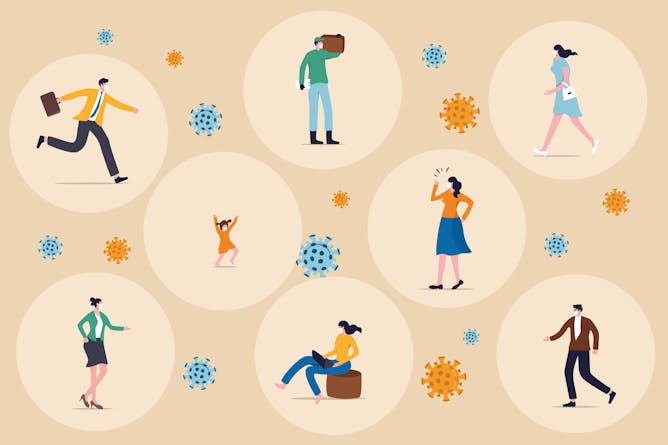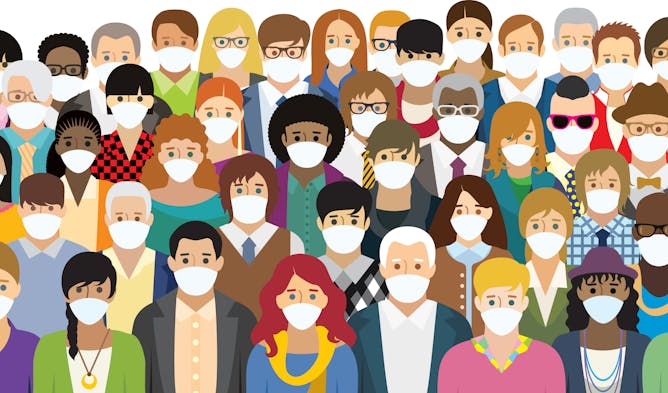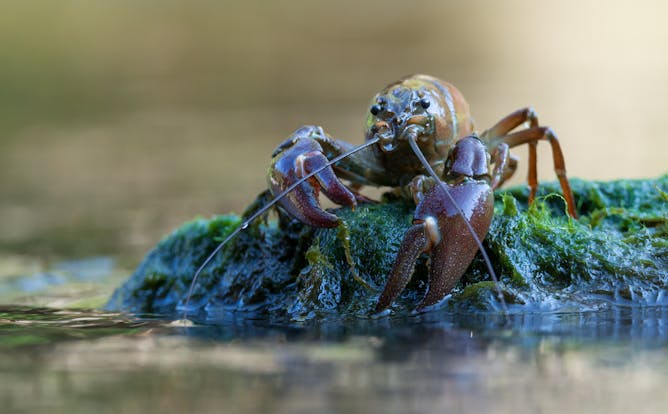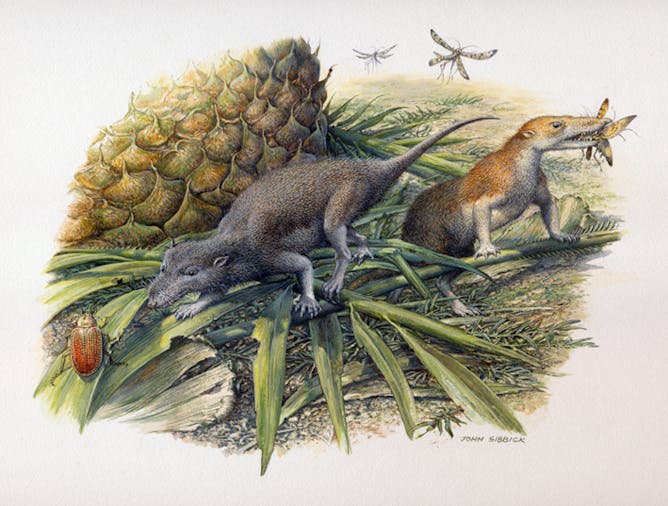|
|
|
|
As people tire of months of coronavirus restrictions, some are saying we should go back to normal life, “learn to live with the virus” and try to achieve herd immunity. But to say this is to ignore a simple and terrifying fact: humankind has never achieved herd immunity without the help of a widespread vaccination campaign. Virologist Sarah Pitt explores the trajectories of smallpox, Spanish flu, Swine flu and Sars to explain why we need to wait for a vaccine to even begin to think about achieving widespread immunity among the population.
Here’s another thing people are wrong about: crayfish. Eating the invasive signal crayfish to try to reduce its impact on British rivers may be an attractive idea, but scientists have found that trapping these critters for food could lead to a pandemic of the crustacean variety.
Meanwhile, another team of researchers has x-rayed the teeth of early mammals to find that their blood ran cold.
|
Megan Clement
Commissioning Editor, COVID-19
|

|
|

Shutterstock/eamesBOT
Sarah Pitt, University of Brighton
Control of an infectious disease through build-up of natural immunity has never been achieved before, and there's no reason to believe COVID-19 is any different.
|

aelitta/Shutterstock
Tomasz Mickiewicz, Aston University; Jun Du, Aston University; Oleksandr Shepotylo, Aston University
Fostering an independent spirit and divergent thinking is useful economically, but may hinder rapid collective action and coordination.
|

Marek R. Swadzba/Shutterstock
Eleri G. Pritchard, UCL
We found that signal crayfish traps tend to catch larger males, letting the bulk of the population go free.
|

Artist’s impression of early mammals.
John Sibbick/University of Bristol
Elis Newham, University of Bristol; Pam Gill, University of Bristol
New study used X-rays of the teeth of early mammals' to show they were more like cold blooded reptiles.
|
Business + Economy
|
-
Janette Rutterford, The Open University
Financial winners in WWI were taxed on their 'excess profits' to help pay for the costs of the war on other parts of the economy.
-
Robin Mason, University of Birmingham
Auctions theory first revolutionised the sale of the mobile phone spectrum; now it is doing the same for the carbon market.
-
Carolin Benack, Duke University
Realizing that economics is a lot like fiction helps us better evaluate the claims economists make about the world we all live in.
|
|
Health + Medicine
|
-
Richard Faragher, University of Brighton
These drugs may help slow or reverse immune system decline.
-
Katrina Wesencraft, University of Strathclyde
How a seaweed extract could help treat type 1 diabetes.
|
|
Politics + Society
|
-
Toby James, University of East Anglia; Holly Ann Garnett, Royal Military College of Canada
An analysis of 55 countries shows voter turnout is lowest among women, the young, poor voters and those with less education.
|
|
Arts + Culture
|
-
Catherine Butler, Cardiff University
You might think he's the hero of his own story but the murder happy Hamlet is really an unconscionable brute.
|
|
Environment + Energy
|
-
Dominique McCollum Coy, Monash University; Roger Dargaville, Monash University; Shirin Malekpour, Monash University
Ever wanted to own your own wind farm? Well now you can.
|
|
| |
Featured events
|

|
Online, Leeds, Leeds, LS2 9HD, United Kingdom of Great Britain and Northern Ireland — University of Leeds
|

|
Swansea University , Singleton Park, Swansea, Swansea [Abertawe GB-ATA], SA3 3DX, United Kingdom of Great Britain and Northern Ireland — Swansea University
|

|
Russell Square, London WC1H 0XG, London, London, City of, WC1H 0XG, United Kingdom of Great Britain and Northern Ireland — SOAS, University of London
|

|
Sustainable Places Research Institute, Cardiff University, Cardiff, Cardiff [Caerdydd GB-CRD], CF10 3BA, United Kingdom of Great Britain and Northern Ireland — Cardiff University
|
|
|
|
| |
| |
| |
| |
| |
|
|
|
|
|
|
|